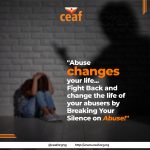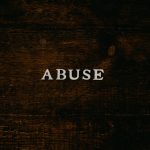Abusive relationships are not just about physical violence; they are often rooted in complex dynamics of power and control.
At the heart of an abusive relationship lies a power imbalance, where the abuser exerts control over the victim. This control can take many forms, including emotional, financial, and physical domination. The abuser seeks to maintain power by undermining the victim’s autonomy and independence.
The Cycle of Control:
Abusers use a variety of tactics to establish and maintain control over their victims. These tactics may include manipulation, coercion, intimidation, and isolation. By systematically eroding the victim’s sense of self-worth and agency, the abuser reinforces their power and control.
Emotional Manipulation:
Emotional abuse is a hallmark of abusive relationships, characterized by manipulation, gaslighting, and invalidation. Abusers may use guilt, shame, and fear to keep the victim under their thumb, making it difficult for them to assert themselves or seek help.
Financial Control:
Money can be a powerful tool of control in abusive relationships. Abusers may control access to finances, withhold resources, or sabotage the victim’s economic independence, making it harder for them to leave the relationship or seek help.
Isolation
Abusers often seek to isolate their victims from friends, family, and support networks, cutting off potential sources of help. By controlling who the victim interacts with and how they spend their time, the abuser maintains a tighter grip on their life.
The Impact on Victims:
The effects of power and control in abusive relationships can be profound and long-lasting. Victims may experience a range of physical and psychological consequences, including anxiety, depression, low self-esteem, and trauma. The pervasive sense of fear and helplessness can make it difficult for victims to break free from the cycle of abuse.
Breaking the Chains:
Breaking free from the grip of power and control requires courage, support, and resources. Victims can reach out to trusted friends, family, or professionals for assistance. Legal protections, shelters, and support groups can provide a safety net for those seeking to escape abusive situations.
Conclusion
Power and control are at the core of abusive relationships, perpetuating a cycle of domination and subjugation. By understanding the dynamics at play and empowering victims to seek help and support, we can work towards breaking the cycle of abuse and creating a world where everyone can live free from fear and oppression.




0 Comments